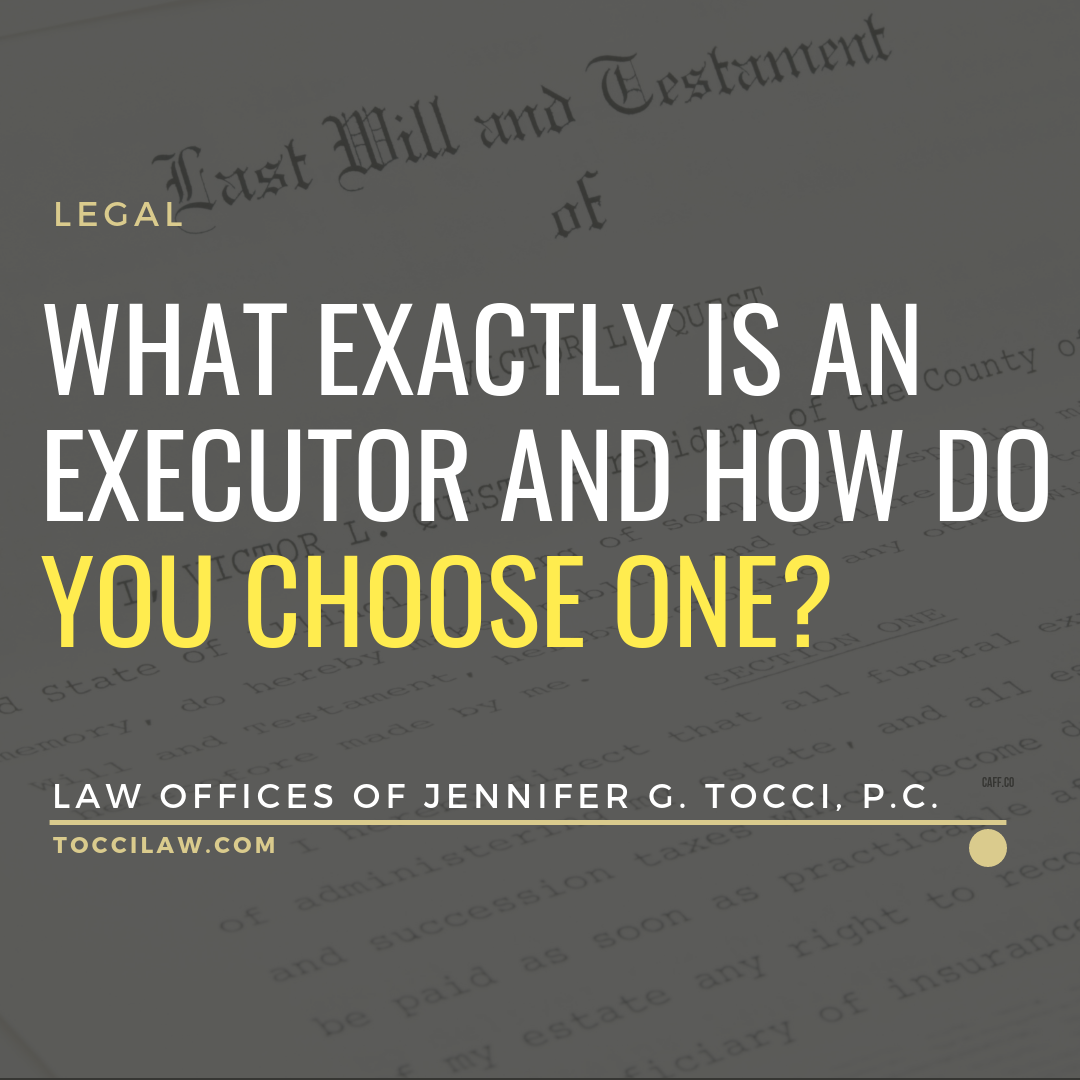What is an executor?
When you create your Will, you will need to choose at least one executor. Your executor is the person who probates your Will, gathers your assets, and distributes them in accordance with your wishes. [Sidebar: Probate means to submit your Will to the court so it can be legally declared valid. The court will then issue documents that authorize the executor to administer your estate in accordance with your Will.]
Who should you choose as an executor?
The person administering your estate will have access to your estate assets, including money. A trustworthy person, one who is preferably organized and can deal with numbers, is a suitable choice. Selecting a good executor can prevent delays, mediate conflicts, and reduce costs during the probate process. However, if you do not know someone with all of the qualities you wish your executor to possess, don’t worry; your executor can (and often does) turn to lawyers, accountants, financial advisors and other licensed professionals for assistance. [Sidebar: The cost associated with administering your estate is borne by the estate.]
Can an executor also be a beneficiary?
Yes, your executor can be a beneficiary but he/she does not need to be. Married parties often choose their spouse to be their executors- although they are not required to choose their spouse. Spouses who execute Wills at the same time do not need to choose the same executors.
What does an executor do?
Each estate may have different needs, but the typical duties of an executor will include:
- Presenting the Will to the court, with a petition to obtain authority over the estate
- Listing and determining the value of the assets and property in the estate
- Deciding which debts are valid and paying them
- Paying estate, property, and income tax
- Managing the property of the estate and investing funds
- Paying the expenses of the estate
- Selling property or investments
- Distributing assets to the beneficiaries named in the Will
- Preparing a final accounting of the estate
What happens if the executor you choose refuses to serve?
It is a good practice to name alternate executors in your Will, in the event the first chosen executor refuses or is unable to serve. However, if you do not have an executor, the court will appoint one; your beneficiaries will not be unable to gain access to your estate just because there is no named executor who can serve.
Tocci Law can help you protect your children, preserve your wealth, and safeguard your assets. We offer a range of estate planning tools and legal services. For legal estate planning services personalized for your estate, schedule an appointment with the Law Offices of Jennifer G. Tocci, P.C., (631) 343-7676.
Attorney Advertising. This blog post is designed for general information only. The information presented at this site should not be construed to be neither formal legal advice nor the formation of a lawyer-client relationship. Prior results do not guarantee a similar outcome. New York State only.










